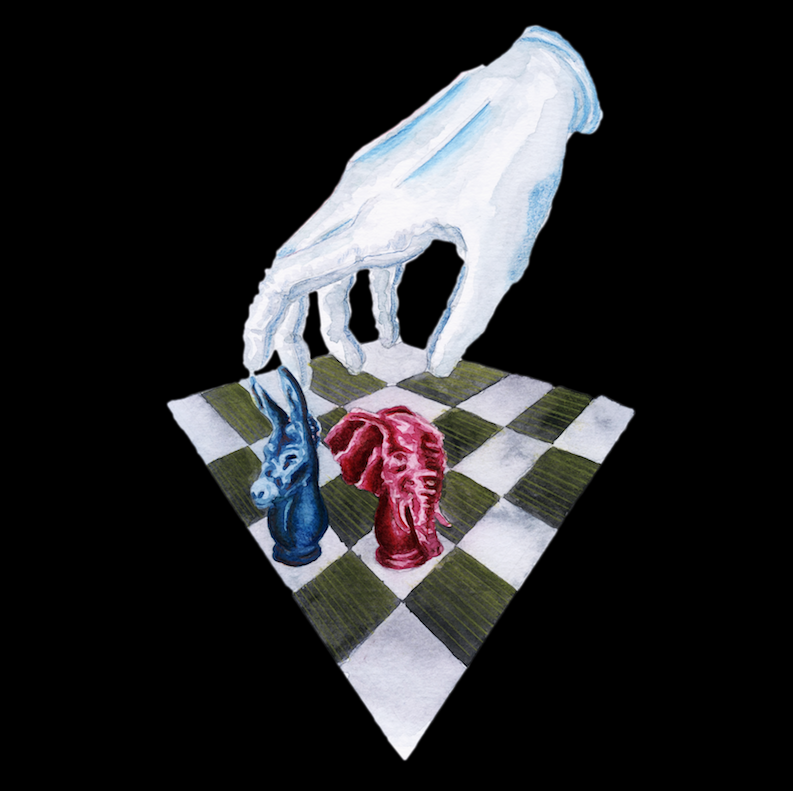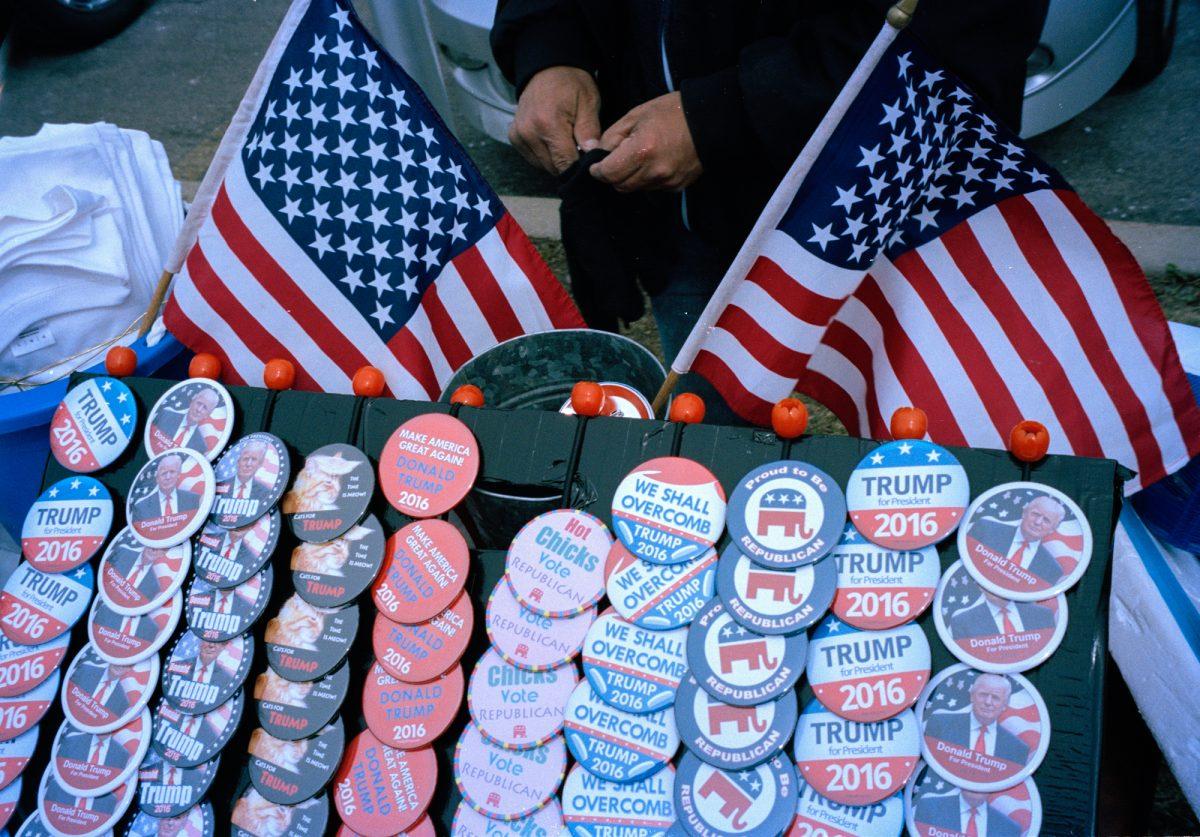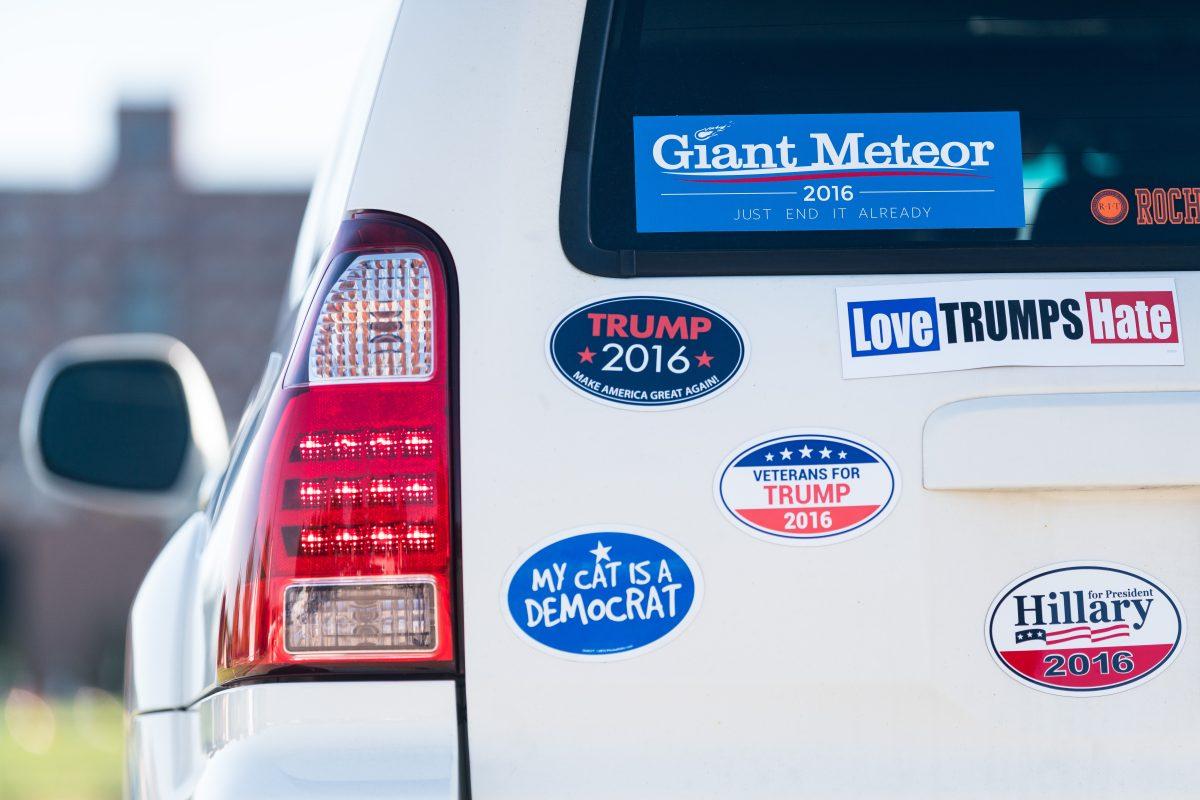“We have in our two major party candidates, Donald Trump and Hillary Clinton, two figures who have been in the public eye for an uncommonly long time,” said RIT Department of History professor, Michael Brown. “How can you reach for something so new and so bold that it will cause a revision in public opinion about figures for whom public opinion has been able to coalesce for years?”
Already having such established public personas, the candidates have had to dig deeper into their offensive, from prying at old wounds to picking fresh fights. They’ve tried it all to attempt swaying the public. As a result, this presidential election has centered around ideals rather than actual policy.
A Game of Identity
“There’s a pleasant fiction that elections are about ideas,” said RIT Department of Political Science professor Sarah Burns. “The goal is to have an inclusive environment where everyone can pull themselves up by their bootstraps and live the American dream. Now what you see in Trump supporters especially, is this idea that the economy is actually a zero-sum game.” Burns explained that Trump is using identity as a means to segregate his voter base between those who will and will not benefit from his propositions.
“The goal is to have an inclusive environment where everyone can pull themselves up by their bootstraps and live the American dream,” Burns said.
To Brown, it appeared as though Trump markets himself around the fact that “he will not engage in politically correct speech, and that politically correct speech is somehow not forthright.
“[His] status as a kind of truth-teller … goes into his mantra of being a businessman, not a politician,” Brown said. “That allowed Trump to cut through a Republican primary field that was replete with figures who were widely seen as up-and-coming members of the party.” Burns referred to Trump as “the billionaire every-man”; This identity and its portrayal through Trump’s public persona follows through “his personal branding as a sort of, no BS, shoot-from-the-hip kind of person.”
For Clinton, identity is a challenging “double-bind,” as Burns phrased it. Trump has attempted to taint Clinton’s campaign with a notably risqué topic: “Donald Trump has dredged [Bill Clinton’s sex scandal] up from the past to continue to have it haunt Hillary and question her credentials today,” said School of Communication professor Hinda Mandell. “We expect her to behave as a wife, as a first lady,” Mandell continued. “We really expect too much of her in terms of how she reacts.”
“A lot of commentators this election cycle have been talking about how she’s kind of damned if she does and damned if she doesn’t,” said RIT Department of History professor, Tamar Carroll about Clinton. “If she sticks up for herself she’s seen as aggressive, if she doesn’t stick up for herself, she’s a doormat.”
Female leaders in many professions deal with this same double standard. A New York Times article equated the issue to the classroom, where male instructors tend to be viewed as smarter than female professors. The article references an interactive chart made by a history professor from Northeastern University, Benjamin Schmidt, into which users may type words like ‘intelligent’ or ‘inspirational’ and see professors of which subject and which gender are more likely to be described by either of those terms in their student’s eyes.
In an op-ed for the Oregonian, Petula Dvorak brought another curious gendered schism to light between the two candidates. Merely being a woman in her late 60s puts Clinton at a disadvantage, as women at her age are supposed to be “invisible,” she argues. The piece goes on to elaborate the sort of “ageist misogyny that older women face.”
Carroll believed Clinton is defying cultural norms. She said that the same kind of “gendered language” has not been used against Clinton’s opponent. “Hillary’s gender is seen as a factor in the race, where it’s just not for Donald Trump,” he said.
Grounded Politics
The sort of slimy campaigning we see between Clinton and Trump dates as far back as 1796 and 1800. Brown noted that at that time, John Adams and Thomas Jefferson had employed surrogates to churn out severe allegations against one another. Ultimately, a sex scandal emerged revealing that Jefferson had been sleeping with his slave Sally Hemings. Not surprisingly, this mudslinging trend has persisted throughout the years. Additionally, according to Brown, Andrew Jackson was later alleged to be living in sin with a married woman and John Quincy Adams was said to have procured American virgins to appease the sexual appetite of the Russian czar. Even Grover Cleveland was revealed to have fathered a son out of wedlock.
“Politics has really been a blood sport for a long, long time,” concluded Brown.
In previous elections, marketing has often spoken through metaphors. Brown stated that Trump’s tendency to enact a sense of “individualism run amok” provides a slew of situations from which Clinton’s campaign may hand pick and “simply repurpose” in their media against Trump.
Burns noted that Clinton’s approach is “more in the traditional realm of what kind of dirty fighting you can do in politics.” She found the commercials to be somewhat unsettling, reminding viewers that children are also watching the messages Trump is saying. Burns made it clear that she would rather see the candidates “trying to elevate the dialogue.”
She also criticized Trump for parading misleading information of highly biased voter polls that claimed he had won the initial debate. Burns believes this sort of deliberate misinformation has a negative impact on the electorate, running the risk of causing voters to mistrust truthful information on the suspicion of faulty claims.
“Politics has really been a blood sport for a long, long time,” concluded Brown.
This sort of dirty politics is most evident between Hillary Clinton and Donald Trump because of the teetering, seemingly empty platforms they stand on.
“The personal invective sort of stands alone in the absence of substantive policy debates, and therefore looks more prominent because it’s thrown into starker relief,” said Brown. Rather than raising the dialogue, they have defaulted to petty disputes towards the other’s character. Voters may be left wanting more, but they’re certainly getting a show.






